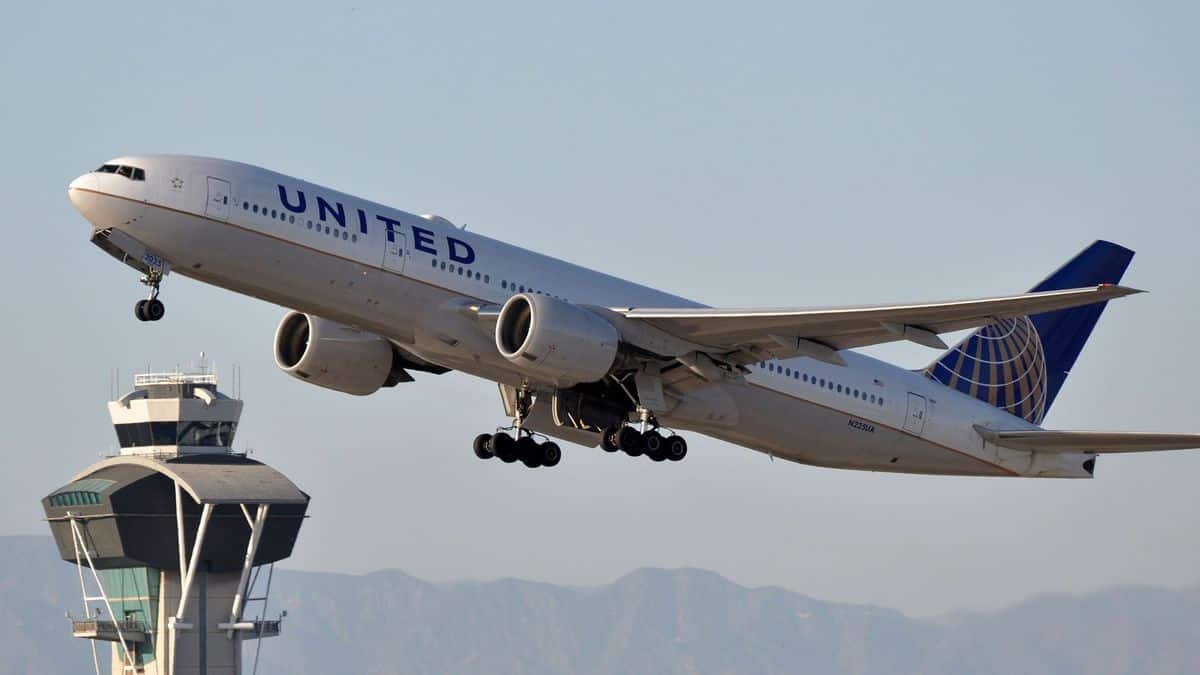United Airlines (NASDAQ: UAL) said Monday evening that the temporary removal of two dozen Boeing 777-200 passenger jets from its fleet as a safety precaution after an engine failure over the weekend could reduce cargo capacity for business customers as soon as March.
The Chicago-based carrier said some large aircraft that had been supporting dedicated cargo operations during the pandemic will return to passenger service to replace the grounded 777s and that cargo schedules will be adjusted accordingly next month.
The exact reduction in cargo space remains to be determined, but it will temporarily dent the roaring growth in cargo sales United has enjoyed for nearly a year after aggressively switching to cargo-only flights using aircraft that were idle because of the severe downturn in travel. And any loss of available flights hurts businesses with goods to move because the supply of cargo is already 20% below pre-pandemic levels and rates are two to three times higher – even with passenger airlines turning many aircraft into temporary freighters in response to the demand.
“As we review options for swapping aircraft in for scheduled passenger flights, we will be readying planes that have been parked in storage, reconfiguring some cargo-only flights to return to the passenger schedule, and modifying the March cargo flight schedule,” United Cargo said in a notice to customers.
“We expect limited impact on cargo shipments through the end of this week. We do, however, expect there to be adjustments to our March cargo flight schedule. Once we have determined the scope of these changes, we will communicate the updated schedule and reach out to customers who have shipments that have been impacted,” it said.
United ultimately may face more a loss of flexibility than actual capacity. The widebody aircraft in its fleet can carry a large amount of cargo when carrying passengers too and with low load factors at the moment there isn’t as much baggage taking up space in the lower hold. Strong cargo routes are likely to continuing having an influence on destinations chosen by United.
On Saturday, a United flight from Denver to Honolulu experienced an uncontained engine failure shortly after departure, scattering debris across residential areas. The preliminary investigation is focused on two fractured fan blades.
Following the incident, Boeing (NYSE: BA) urged airlines to stop flying the 777 aircraft with Pratt & Whitney 4000-112 engines, while the Federal Aviation Administration ordered immediate stepped up inspections of aircraft with the Pratt & Whitney 4000-series engines. There are 128 aircraft worldwide with the engine type, 69 of which are in current service. United is the only U.S. airline operating 777s with that engine and has another 28 of them in storage.
Aviation authorities in Japan have also stopped local carriers from flying aircraft with the same engine type.
The impact on cargo operations depends on how long it takes to inspect the engines and determine whether any other measures are required. United has the benefit of replacing “mini-freighters” with other assets currently in storage, but returning planes to service takes time to complete necessary checks and perform maintenance.
United’s cargo revenue increased by more than 40% last year, ending the year with a three-quarters increase versus the same period in 2019.
United’s fleet includes 55 777-300 Extended Range aircraft and another 22 777-200s with GE or other engines, according to its latest annual report a year ago.
The five airlines still operating 777-200s – United, Japan Airlines, All Nippon Airways, Asiana and Korean Air – were in the process of phasing them out because they are older and less efficient.
The 777-300 is widely considered by industry practitioners as the ideal aircraft for cargo – either in passenger or pure freighter configuration – because of its large payload capability and fuel efficiency.
United also has 48 Boeing 787s, which have good cargo capacity too.
Longtail Aviation engine shreds
Meanwhile, a Boeing 747-400 cargo jet operated by Bermuda-based Longtail Aviation blew out an engine shortly after takeoff Saturday from Maastricht Airport in the Netherlands. The plane was powered by Pratt & Whitney 4000 engines, similar to the ones on the United 777.
Engine parts rained to the ground, injuring one woman.
As FreightWaves previously reported, Longtail Aviation is a private jet operator for VIPs that leased a 747 freighter to take advantage of the transport demand. In July, the FAA gave the company authority to operate to the U.S.
Click here for more FreightWaves/American Shipper stories by Eric Kulisch.
RELATED NEWS:
United Airlines continues cargo hot streak in Q4
50% jump in cargo revenue helps United Airlines slow Q3 cash burn












Jason
You are incorrect in the number of 777-300 and 777-200 aircraft the numbers are switched.